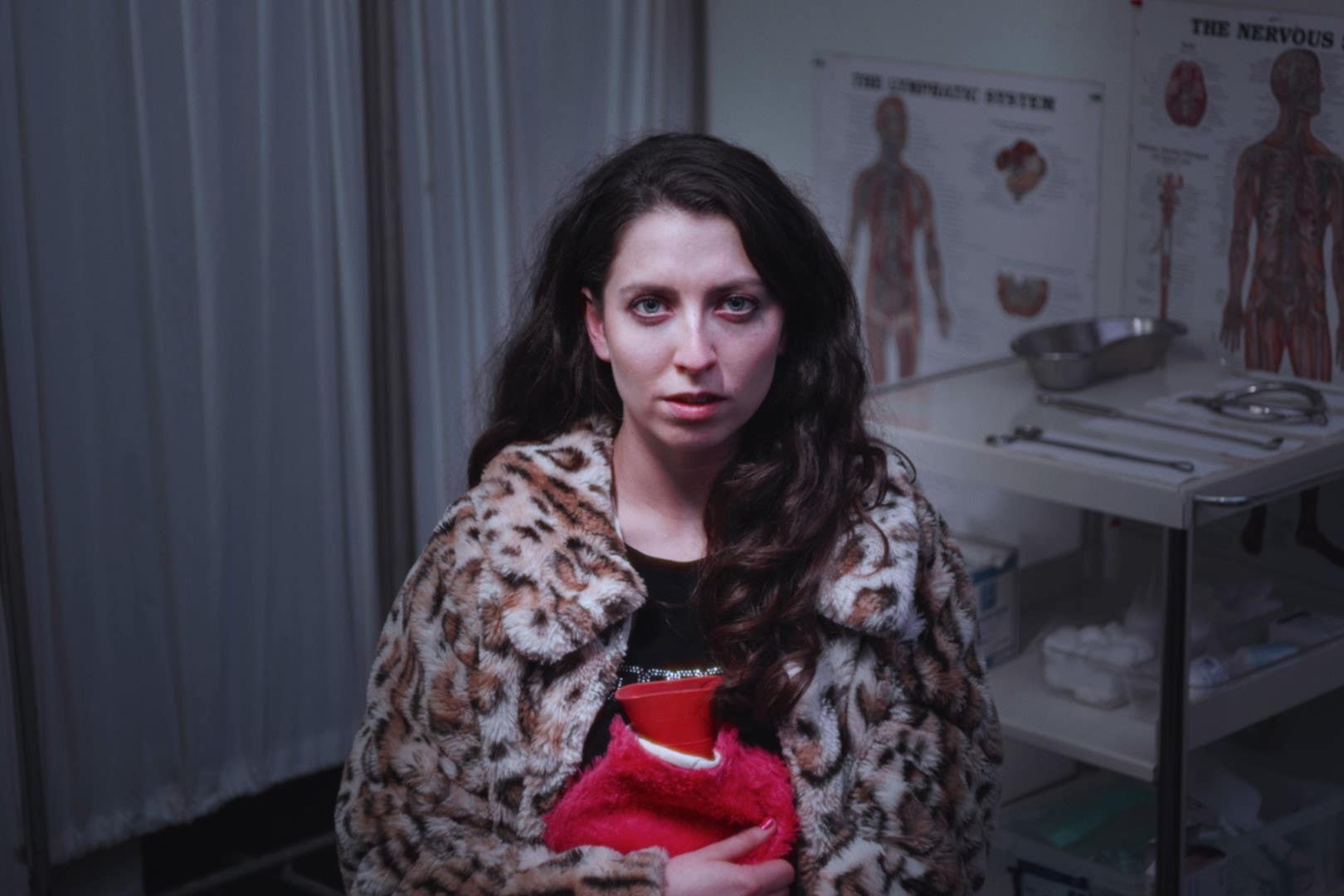Film about medical misogyny wins best director gong at BFI Future Film Festival
All Up There follows 20-something Eilidh as she seeks answers for the debilitating pain she is experiencing.

Your support helps us to tell the story
From reproductive rights to climate change to Big Tech, The Independent is on the ground when the story is developing. Whether it's investigating the financials of Elon Musk's pro-Trump PAC or producing our latest documentary, 'The A Word', which shines a light on the American women fighting for reproductive rights, we know how important it is to parse out the facts from the messaging.
At such a critical moment in US history, we need reporters on the ground. Your donation allows us to keep sending journalists to speak to both sides of the story.
The Independent is trusted by Americans across the entire political spectrum. And unlike many other quality news outlets, we choose not to lock Americans out of our reporting and analysis with paywalls. We believe quality journalism should be available to everyone, paid for by those who can afford it.
Your support makes all the difference.A film about medical misogyny has won the director gong at the British Film Institute’s (BFI) Future Film Festival.
Praised for its “originality”, All Up There by Scottish filmmaker Bonnie MacRae follows 20-something Eilidh as she begins to seek answers for the debilitating pain she is experiencing.
The category is one of three that was judged by BFI’s jury at the 2024 film festival, which featured speakers from across the industry, including Peep Show co-creator Jesse Armstrong and Big Boys actor Olisa Odele.
We were inspired by the film’s originality and could see this was a director with great potential.
Jury members and filmmakers Adura Onashile and Dan Cadan said of MacRae’s win: “All the films in this category felt very strong, but our winning director displayed a unique vision, a desire to push boundaries and great confidence in treating what could feel like an ‘issue’ with humour and creativity.
“A lightness of touch allowed the audience to feel an emotional punch by the conclusion, and each moment was delivered with thought and precision throughout.
“We were inspired by the film’s originality and could see this was a director with great potential.
“We very much look forward to seeing what they make in the future.”
Also selected by the jury was best new talent, which was won by Tiffany Whitney Chang for Stir, a film about the accidental death of a family pet which puts a family into an unusual predicament.
Jury members Onashile and Chloe Abrahams said: “We were immersed in this film from the first shots, and it has left an impression on us in the days since watching.
“Deceptively simple in its concept, we were impressed with many aspects – the brilliant cinematography, surprising and funny writing, and the filmmaker’s ability to convey so much depth in such a short runtime.
“We felt this filmmaker trusted their instincts and leant into the power of a simple story to create a strong piece of film that clearly shows their potential.”
Best film was given to The Third Ear by Nathan Ginter and follows a life drawing model whose self image spirals after he sees a botched image of himself and goes onto grow an ear on his back.
Jury members Alexi Tan and Naqqash Khalid said: “Each of the films presented has such a unique sense of voice, it was difficult to highlight just one.
“The Third Ear manages to create and sustain a unique atmosphere whilst representing a complex character portrait – and to do this in the space of a short film is quite the achievement.
“The film has an original, quirky blend of both humour and suspense, and the filmmaker is a cinematic voice we are very much looking forward to seeing more of in the future.”
In addition to the three awards judged by the BFI’s jury, which was chaired by filmmakers, several other categories were judged by BFI and industry experts.
Best documentary was won by Minerva Navasca’s Guardians, which walks viewers through the psychological reality of a girl’s journey home, and best experimental film was given to Lucidity by Kit Warner, the ominous experience of a photographer who reimagines a dream like memory of a beach.
Best international film was awarded to Dreams Of Home, a visual poem crafted from the footage of filmmaker Justin Kaminuma’s life.
Rock Springs by David Huang, which follows a Chinese miner in the days leading up to the 1885 Chinese Massacre in Wyoming, was also given a special mention for best international film.
Elsewhere best micro short was won by experimental film 36,000 Words For Love by Zeb Goriely and best writer was given to Jack McLoughlin for Are You Okay? which sees Carl and his sister confront some dark truths after their car breaks down.
This year’s BFI Future Film Festival ran from February 15 to 18 and each award winner was given a cash prize of £1,500 and a mentoring package.
The winners were announced online and in person at BFI Southbank on Sunday.